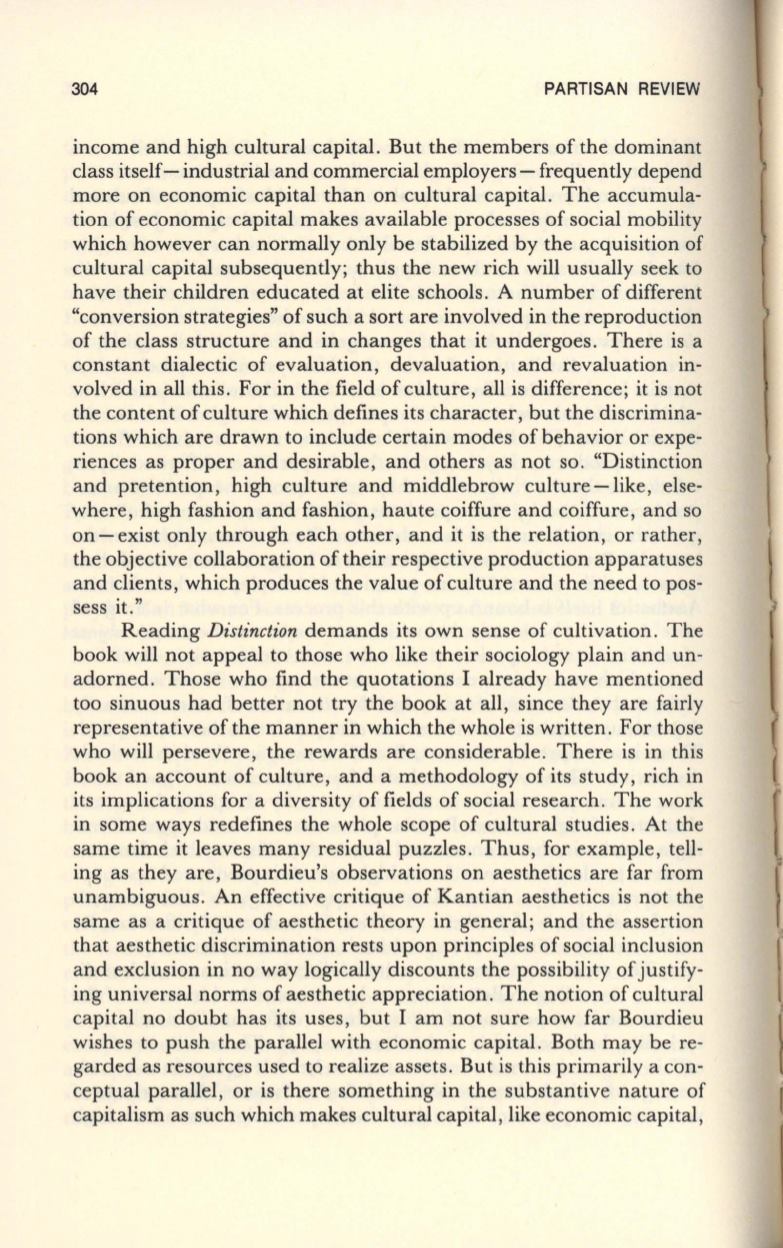
304
PARTISAN REVIEW
income and high cultural capital. But the members of the dominant
class itself-industrial and commercial employers - frequently depend
more on economic capital than on cultural capital. The accumula–
tion of economic capital makes available processes of social mobility
which however can normally only be stabilized by the acquisition of
cultural capital subsequently; thus the new rich will usually seek to
have their children educated at elite schools. A number of different
"conversion strategies" of such a sort are involved in the reproduction
of the class structure and in changes that it undergoes . There is a
constant dialectic of evaluation, devaluation, and revaluation in–
volved in all this . For in the field of culture, all is difference; it is not
the content of culture which defines its character, but the discrimina–
tions which are drawn to include certain modes of behavior or expe–
riences as proper and desirable, and others as not so. "Distinction
and pretention, high culture and middlebrow culture -like, else–
where, high fashion and fashion, haute coiffure and coiffure, and so
on-exist only through each other, and it is the relation, or rather,
the objective collaboration of their respective production apparatuses
and clients, which produces the value of culture and the need to pos–
sess it."
Reading
Distinction
demands its own sense of cultivation. The
book will not appeal to those who like their sociology plain and un–
adorned. Those who find the quotations I already have mentioned
too sinuous had better not try the book at all, since they are fairly
representative of the manner in which the whole is written. For those
who will persevere, the rewards are considerable. There is in this
book an account of culture, and a methodology of its study, rich in
its implications for a diversity of fields of social research . The work
in some ways redefines the whole scope of cultural studies. At the
same time it leaves many residual puzzles. Thus, for example, tell-
ing as they are, Bourdieu's observations on aesthetics are far from
unambiguous. An effective critique of Kantian aesthetics is not the
same as a critique of aesthetic theory in general; and the assertion
that aesthetic discrimination rests upon principles of social inclusion
and exclusion in no way logically discounts the possibility of justify-
ing universal norms of aesthetic appreciation. The notion of cultural
capital no doubt has its uses, but I am not sure how far Bourdieu
wishes to push the parallel with economic capital. Both may be re-
garded as resources used to realize assets. But is this primarily a con-
ceptual parallel, or is there something in the substantive nature of
capitalism as such which makes cultural capital, like economic capital ,


